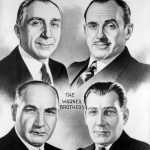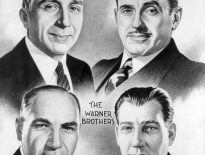(Reuters) – As he stood in the voting booth last week, South African pensioner Mokayile Maraba agonized long and hard over whether to vote for the ruling African National Congress (ANC), a party he has supported all his life.

Twenty years after the end of apartheid, the retired civil servant still lives in a run-down tin-shack township that lacks electricity or decent sewers, despite the ANC’s promise to build a ‘better life for all’.
But ultimately it was the memory of a racist incident he suffered 60 years ago that ensured his continued allegiance to the late Nelson Mandela’s former liberation movement.
Maraba, 73, remembers how, after he was bitten by a dog, the white owner showed no remorse because the victim was black, an example of the discrimination meted out on a daily basis to non-whites under apartheid.
I will never forget that day. I know what apartheid means, because I grew up under apartheid. I have lived that word, he told Reuters outside his home in Bekkersdal, 70 kilometers (43 miles) west of Johannesburg.
When I think about voting for another party and abandoning the ANC, those memories come back to haunt me, he added.
Maraba’s thinking – in which the painful memories of decades of racial oppression outweigh the privations of the present day – is widespread across South Africa, and helps explain why the ANC’s popularity is so resilient.
Nationwide, it won 62 percent of the vote in the May 7 election, but in Bekkersdal, which has been rocked by a series of violent protests over poor public services in the last six months, it was 68 percent.
The Economic Freedom Fighters, a new radical leftist party led by expelled ANC youth leader Julius Malema, and the Democratic Alliance, which is still seen as the political home of privileged whites, garnered about 11 percent each.
Moses Sithole, a grocery store owner in the township, is baffled that the ANC still enjoys so much support when he looks around at the derelict shacks, dusty roads and gangs of unemployed youths hanging around on street corners.
There is really nothing that the ANC is doing to improve this place. Look at this, Sithole said, pointing to a stream of raw sewage flowing past his shop.
It has been like this since we gained freedom in 1994. I don’t see anything changing. We are waiting for the violence to flare up again, he said.
While life for many blacks has improved since Mandela became president at the end of white rule in 1994, critics say ANC under President Jacob Zuma has done little to improve the lot of the millions still crammed in poorly serviced townships.
ONE MORE CHANCE
Many Bekkersdal residents initially vowed to boycott the May 7 election after provincial premier Nomvula Mokonyane, when addressing disgruntled locals in the township after violent unrest, said the party did not need their dirty votes.
But ultimately, they gave the party another chance, and the ANC secured another thumping majority.
The persistence of ‘radicalized’ voting patterns is unsurprising, given history and the persistence of apartheid’s special planning and economic, demographic and cultural disparities in the present day, said independent analyst Nic Borain.
However, there may be just enough voter admonishment implicit in the ANC’s loss of 15 National Assembly seats and the more dizzying drops in the major metropolitan areas to cause the party to attempt a clean-up of the behavior of some of its top leaders.
Zuma, dogged by controversy over a multi-million dollar state-funded upgrade to his private rural home, promised at the weekend to create jobs and ramp up infrastructure projects, even as the government dispatched soldiers to quell post-election unrest in Johannesburg’s Alexandra township.
Another five years of unfulfilled promises by Zuma’s in-coming government might not go unpunished at the next elections in 2019, warned Maraba’s unemployed daughter Elizabeth as she contemplated a bleak future in Bekkersdal.
Elizabeth is fast losing patience with the ANC and, at only 24, does not have the kind of memories that help her father to overlook the ruling party’s failings.
We want jobs, we want developments, and they must fix the sewers around here, she said, visibly agitated. We are tired of being taken for granted.
(Editing by Ed Cropley and Will Waterman)





